
Lajme
string(53) "index-of-economic-freedom-2022-kosovo-drops-28-places"English

Gazeta Express
16/02/2022 22:56Index of Economic Freedom 2022, Kosovo drops 28 places
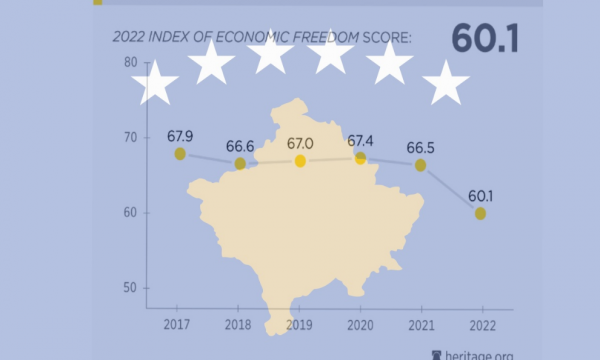
English

Gazeta Express
16/02/2022 22:56The Heritage Foundation has published Index of Economic Freedom 2022, showing Kosovo has dropped 28 places comparing with 2021. According to the Index Kosovo is ranked 86 in the world, whereas in Europe is ranked in 40th position out of 45 listed countries, Gazeta Express reports.
Kosovo’s economic freedom score is 60.1, making its economy the 86th freest in the 2022 Index. Kosovo is ranked 40th among 45 countries in the Europe region, and its overall score is below the regional average but above the world average, according to the report.
“Over the past five years, Kosovo’s economic growth accelerated from 2017 through 2019 before turning negative in 2020. There was a healthy revival of growth in 2021. A five-year trend of declining economic freedom has continued. With a steep drop in scores for rule of law, Kosovo has recorded a 7.8-point overall loss of economic freedom since 2017 and has fallen to the bottom of the ‘Moderately Free’ category. Monetary freedom and trade freedom are relative strengths, but financial freedom is poor,” according to the report.
IMPACT OF COVID-19: As of December 1, 2021, 2,984 deaths had been attributed to the pandemic in Kosovo, and the government’s response to the crisis ranked 91st among the countries included in this Index in terms of its stringency. The economy contracted by 6.0 percent in 2020.
In the report is stated that property rights in Kosovo are respected, but weaknesses in the legal system and difficulties associated with establishing title to real estate, partly as a result of competing claims arising from the history of conflict with Serbia, make enforcement difficult. The weak judiciary lacks independence and technical capacity. Corruption is widespread and a matter of serious concern, and the institutional framework to combat it is weak.
The top personal income and corporate tax rates are 10 percent. Other taxes include value-added and property taxes. The overall tax burden equals 23.4 percent of total domestic income. Government spending has amounted to 30.7 percent of total output (GDP) over the past three years, and budget deficits have averaged 4.4 percent of GDP. Public debt is equivalent to 24.4 percent of GDP.
Political interference with business freedom and a prevailing lack of contract enforcement can make running a business in Kosovo a risky endeavor. A skills and wage gap is partly to blame for Kosovo’s persistently high unemployment rate. In addition to maintaining large agricultural and energy-related subsidies, the government continues to support money-losing state-owned enterprises.
Kosovo has two preferential trade agreements in force. The trade-weighted average tariff rate is 3.2 percent. Efforts to dismantle lingering nontariff barriers continue. Foreign and domestic investors are generally treated equally under the law. State-owned enterprises distort the economy. The financial system is dominated by banking and continues to evolve. In 2020, several temporary measures were taken to ease the immediate financial impact of the COVID-19 pandemic.
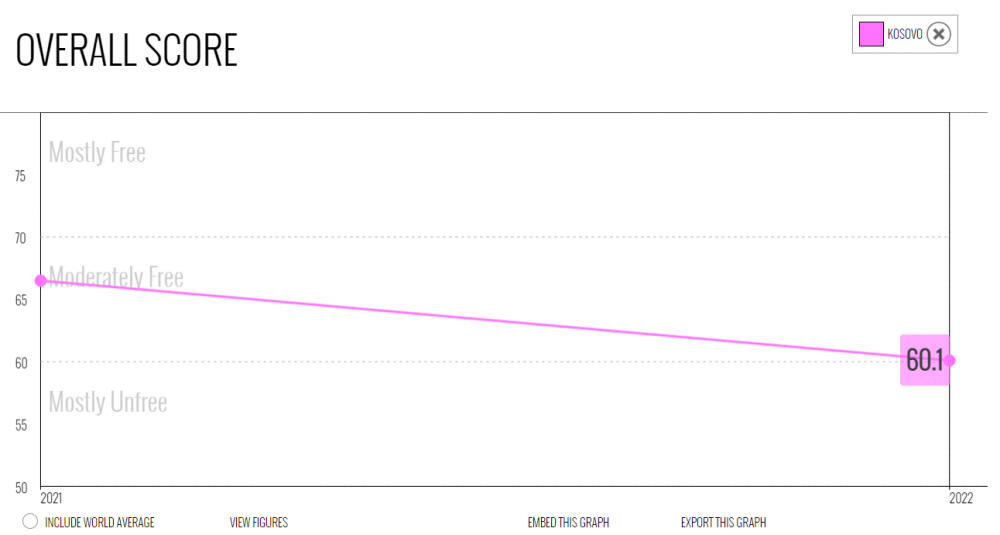
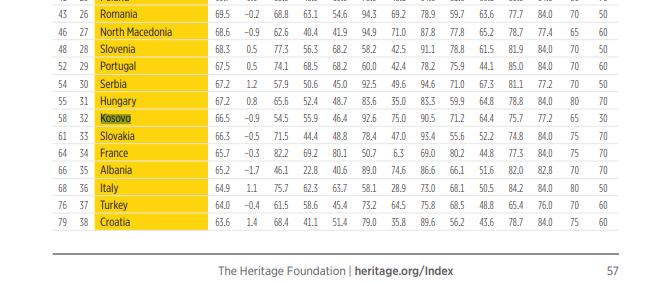
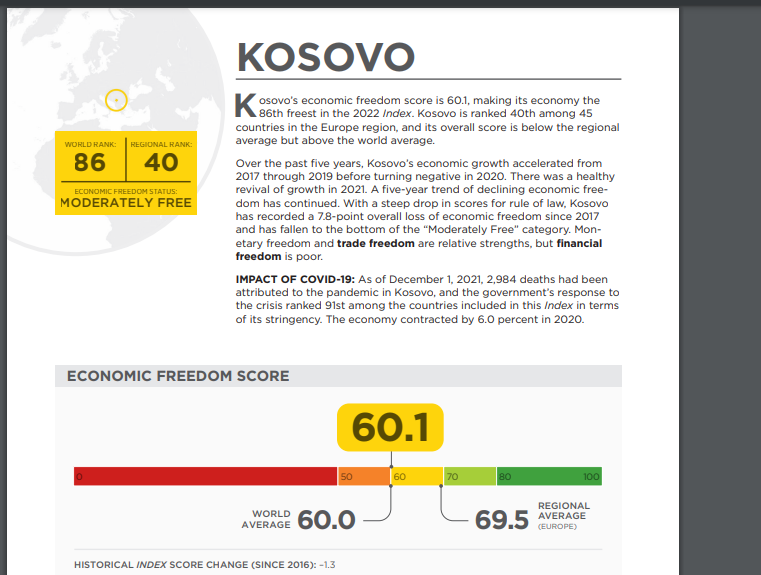
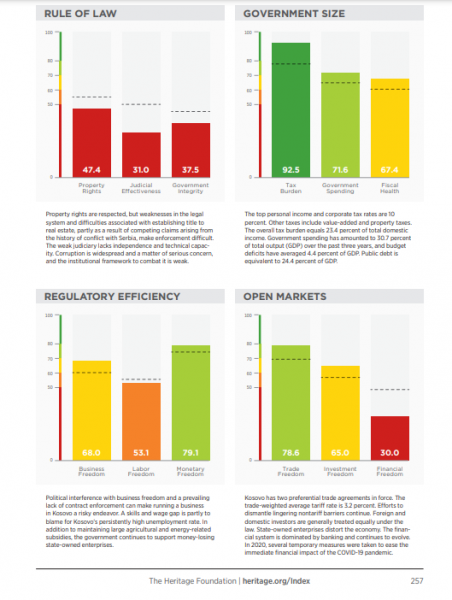
Të tjera nga rubrika
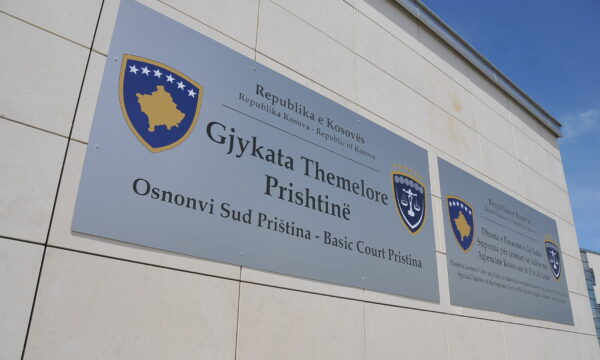
The Basic Court dismisses the indictment against Klodian Allajbeu, Ekrem Lluka and others

Jessica Simpson Takes Lookalike Daughter to Paris For 13th Birthday Amid Divorce

British couple die after Ferrari plunges off mountain in Spain
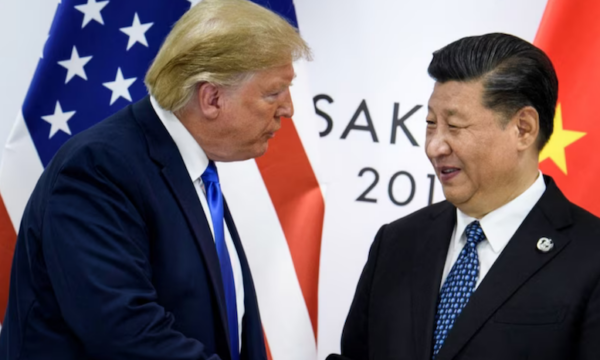
Tariffs Temporarily Cut As Talks Narrow Differences
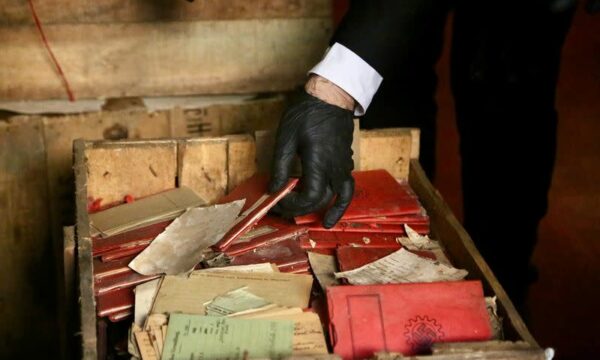
Argentina’s top court finds 80 boxes of Nazi materials in its basement

Why The Tops Of Microwave-Baked Treats Are Ugly And How To Fix Them
Te fundit
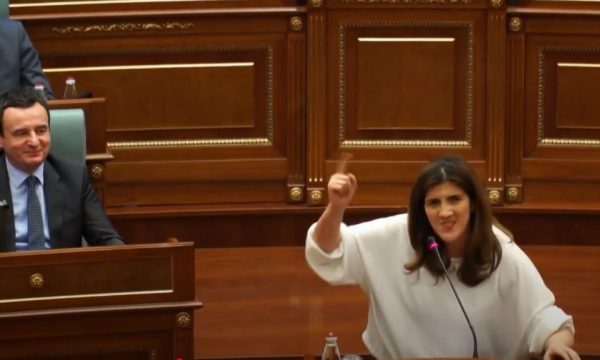
Musliu godet Kurtin për pjesëmarrjen tij në Greqi: Katundi digjet K…. krihet

Çdo udhëtim i mirë fillon me një ndalesë

Arrihet marrëveshja, Mbeumo do të transferohet te Man Utd
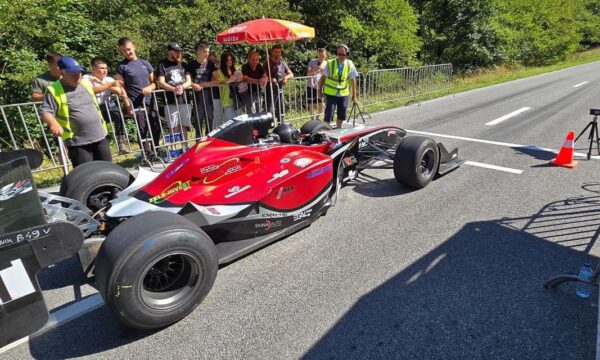
“Brezovica 2025”, tre të parët e vitit të kaluar synojnë sërish podiumin
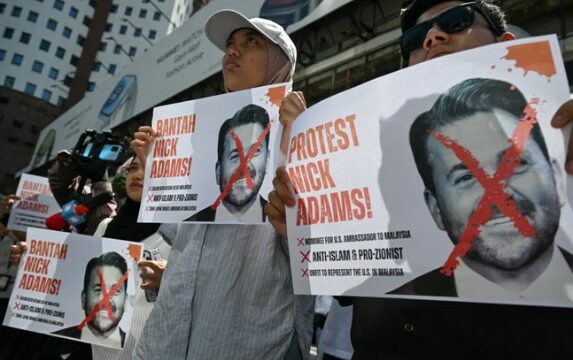
“S’ka vend për islamofobë”: Protesta në Malajzi, kundërshtohet ambasadori i emëruar nga Trump, Nick Adams

Kapiteni i FSK-së diplomon në ShBA, nderohet me çmim ndërkombëtar
✕





